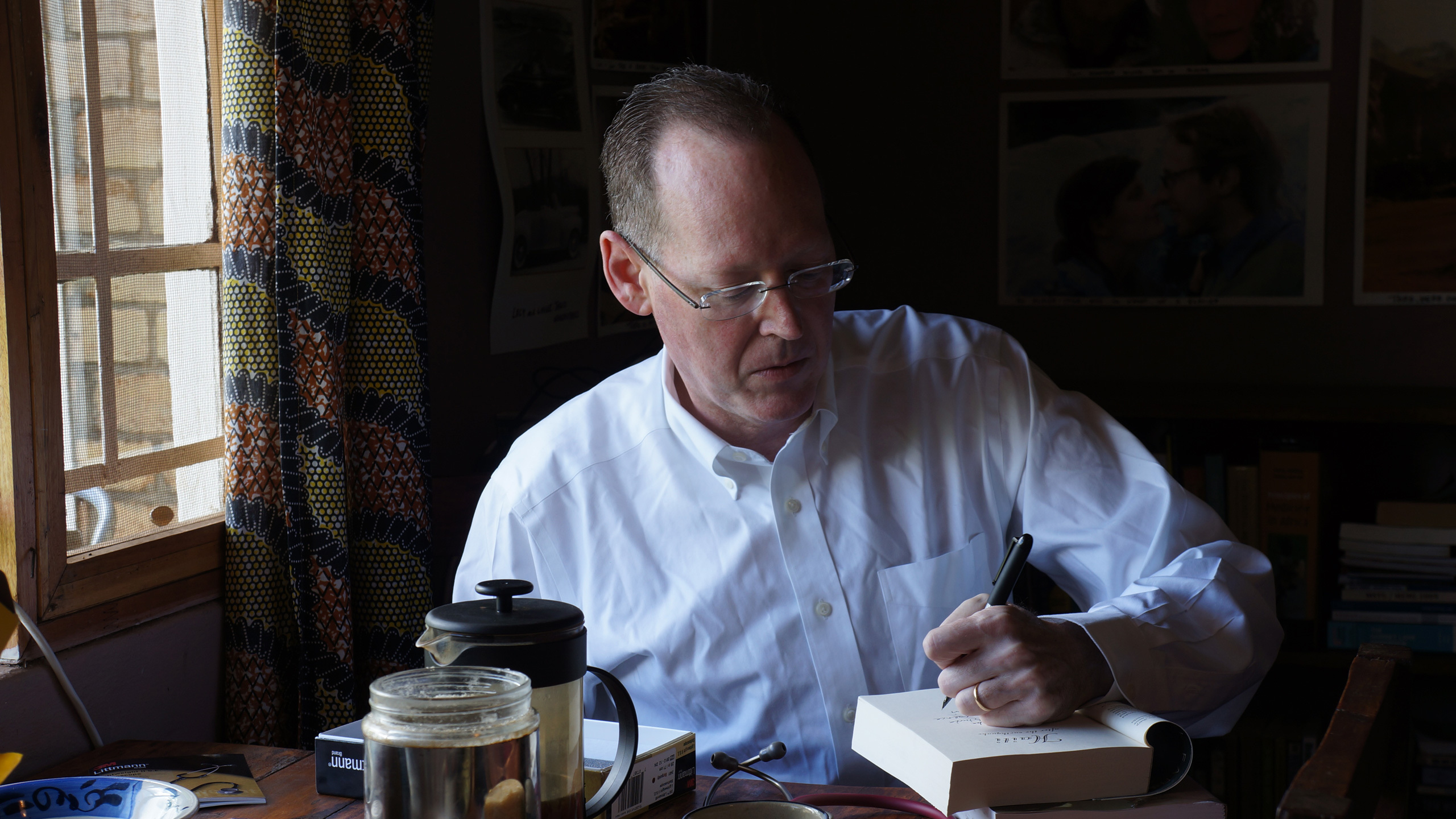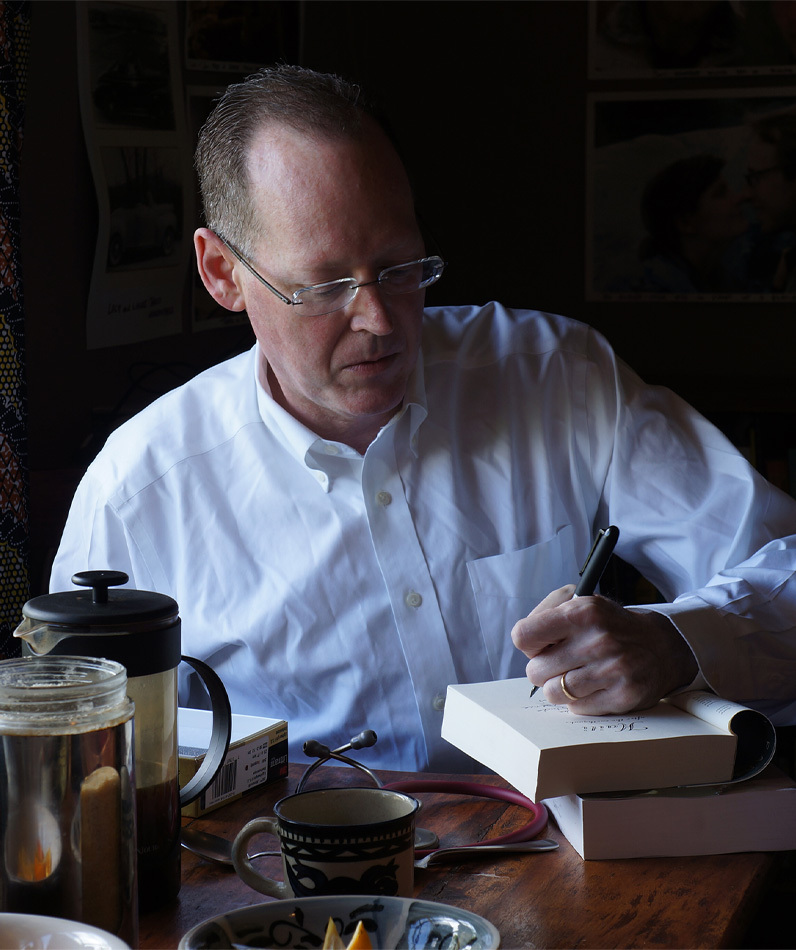Paul Farmer's Principles
Dr. Paul Farmer was a visionary leader, who—with partners and friends—pioneered community-based innovations that advanced global health equity by focusing on the needs of the most vulnerable. He served as co-founder and chair of the Board of Trustees of Partners In Health (PIH), chief of the Division of Global Health Equity at Brigham and Women’s Hospital (BWH), and the Kolokotrones University Professor and chair of the Department of Global Health and Social Medicine at Harvard Medical School (HMS).
The Global Health Delivery Partnership that Paul created across these three institutions exemplifies his conviction that care delivery must be linked with training and education, research that influences policy change, and global replication of best practices—which together form the pillars of PIH's theory of change.
Paul’s expansive teachings continue to deeply inform PIH’s mission and work, transform global health delivery, and forge radical new paradigms in social medicine. Given the tremendous breadth of his impact—from the bedside to global policy—it is difficult to capture the full depth of Paul’s principles, which is why we decided to turn to his words.
The following excerpt comes from Paul’s academic curriculum vitae for Harvard, in which he outlined the intellectual framework that he applied to his own work.
While not an exhaustive representation of his scholarship, Paul’s words below offer insight into the questions that guided his research, spurred him to action, and continue to inspire PIH’s bold theory of change and vision for a healthy, more equitable world.
Paul’s Harvard Curriculum Vitae Narrative
Each year since named to the HMS faculty, I have directed at least one social-medicine course at Harvard University. As an attending physician in infectious diseases at BWH, I train medical students, residents, and fellows, which allows me to remain involved in the selection and training of internal medicine residents. Through more than 30 years of experience working in rural Haiti—including 10 years as medical director of a clinic—I’ve been able to teach HMS students not only medical anthropology, but also tropical medicine and parasitology. I have also been invited as a visiting professor at institutions throughout the United States, as well as in France, Canada, Peru, the Netherlands, Russia, and Central Asia.
My research and writing stem in large part from work in Haiti, Peru, Russia, Rwanda, Lesotho, Malawi, Sierra Leone, and Liberia, and from the abovementioned clinical and teaching activities. My field is the anthropology of infectious disease, but I practice an anthropology rooted in clinical practice, engaging both social theory and pathophysiology. Five main research questions have commanded my attention for the past 30 years:
- How do large-scale social forces affect the distribution and outcome of infectious diseases? Clinicians know that social forces—ranging from poverty to racism to war—have an enormous impact on the health of their patients but do not know the mechanisms by which this occurs. My work links methodologies as disparate as ethnography and molecular epidemiology in order to discern and to differentially weight the factors influencing disease distribution and outcome.
- How does epidemic disease affect communities? Since exploring the impact of AIDS on a small community in Haiti, I’ve conducted similar studies among Haitians living in the United States and among urban Peruvians facing an epidemic of multidrug-resistant tuberculosis (MDRTB).
- How effective are projects designed to lessen the impact of epidemic disease? Convinced that clinician-anthropologists could contribute to the operational-research literature, I’ve explored barriers to program success, focusing primarily on tuberculosis, HIV disease, and enteric diseases. For example, linking ethnographic inquiry to cohort analysis, I discovered that poor outcomes among Haitians with tuberculosis were not attributable to their explanatory models, which in most instances linked the disease to sorcery. Good outcomes were linked to changes in program performance rather than changes in patients’ illness representations.
- How does scientific error affect policy and practice? Early work in AIDS led me to appreciate the impact of scientific error. My work has since been influenced by a concern for “immodest claims of causality,” but some projects have been devoted largely to the exploration of discrepant claims staked by researchers. More recently, we have explored spurious claims that MDRTB is not treatable or that it is less infectious or less virulent than susceptible strains of Mycobacterium tuberculosis.
- How are health and health care related to human rights? Haiti taught me that poverty, inequality, and political turmoil lead inevitably to poor health outcomes among the vulnerable, and this lesson led to my first works in this arena. I have since written extensively about the care of patients in prisons and other settings of violence.

